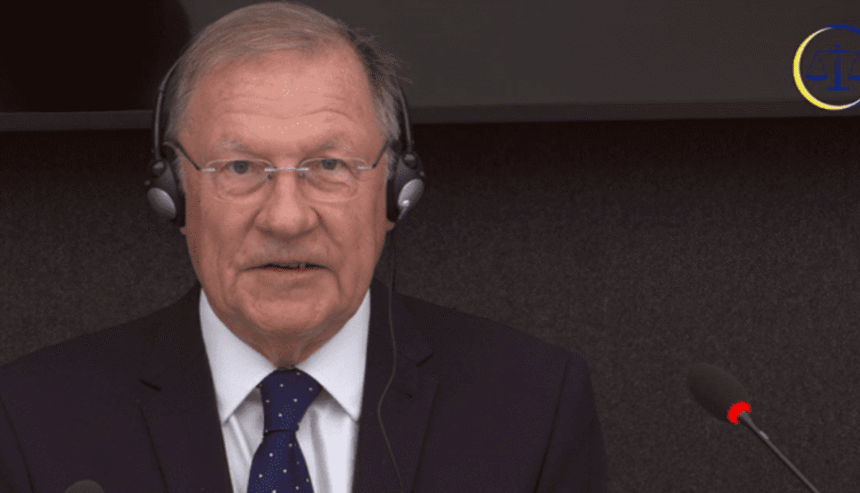While testifying about the KLA Demilitarization Agreement, witness John Stewart Duncan was asked why Hashim Thaçi was referred to in that document as the Commander-in-Chief of the KLA. Duncan said the title was exaggerated.
“I don’t know who proposed that… in my opinion, it was an inflated, grand title. From my personal experience, I remember that in African revolutionary movements where I grew up, guerrilla leaders were often given such titles as ‘General.’ Even in France, where I lived for several years, resistance leaders could say ‘this is Battalion X-Y,’ when in reality it was only 300 people. There was a tendency to inflate and exaggerate titles. So this is something I never took seriously and didn’t consider important,” said Duncan.
According to him, the title did not correspond to reality and was more of an exaggeration.
“In my view, it was simply an exaggeration, a grandiose title given to someone that did not reflect reality,” he stated.
The witness said it had initially been planned for Agim Çeku to sign the Demilitarization Agreement, as it was said Thaçi was not available. But later, Thaçi’s name appeared as the signatory, a change that Duncan said was proposed by the KLA itself.
“It came from the KLA’s side, meaning it was their proposal that Thaçi sign the document,” he explained.
Duncan noted that the international side did not object to Thaçi signing, as what mattered was ensuring the full inclusion of the Kosovar side—specifically the military wing.
He further emphasized that, knowing the Albanian sense of honor and their cultural commitment to the given word, or besa, the international community trusted that the agreement would be implemented.
According to Duncan, there was an understanding that, over time, recognition would follow, creating the possibility of something that could lead to independence.
Finally, the witness clarified that Thaçi could not have signed as Prime Minister of the Provisional Government, as that would have implied recognition of that body.







